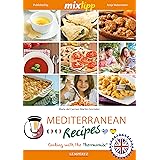The culinary traditions surrounding the Mediterranean Sea have long been recognized for their profound contributions to human health and longevity. As explored in the accompanying video, the Mediterranean Diet is not merely a transient nutritional regimen; rather, it represents a deeply rooted dietary paradigm that has been rigorously validated by scientific research. This comprehensive approach to eating emphasizes whole, unprocessed foods, generous plant-based components, and a holistic appreciation for meals shared with community.
For those contemplating how to start the Mediterranean Diet, understanding its foundational principles is paramount. This dietary pattern, originating from countries such as Greece, Italy, Spain, and parts of the Middle East and North Africa, is less about restrictive rules and more about embracing an abundant, flavorful, and sustainable lifestyle. Its proven efficacy in reducing the incidence of chronic diseases and extending lifespan positions it as a cornerstone for optimal wellness.
Understanding the Mediterranean Diet: More Than Just Food
The Mediterranean Diet is characterized by its broad geographical and cultural origins, meaning it is not a monolithic structure but rather a collection of shared dietary tenets. Diverse cuisines, from the sun-drenched coasts of Southern Italy to the fertile lands of Lebanon, are united by common practices that have been refined over centuries. Fundamentally, this eating pattern is distinguished by its emphasis on minimally processed, locally sourced ingredients.
Scientific consensus indicates that individuals adhering to this lifestyle are frequently observed to experience lower rates of cardiovascular disease, certain cancers, type 2 diabetes, and neurodegenerative conditions like Alzheimer’s disease. Moreover, the inherent sustainability of the Mediterranean Diet, focusing on readily available whole foods and reduced reliance on processed animal products, makes it an ecologically conscious choice. Its principles are designed to nourish the body long-term, moving beyond the temporary fixes offered by many fad diets.
Foundational Pillars for Embracing Mediterranean Eating
Adopting the Mediterranean Diet is initiated through a systematic integration of its core dietary components and lifestyle practices. Each principle contributes synergistically to the overall health benefits experienced by adherents. The following sections delineate the essential elements required to successfully start the Mediterranean Diet journey.
1. Prioritizing Whole, Unprocessed Foods
The initial and perhaps most critical step in transitioning to the Mediterranean Diet involves a stringent avoidance of ultra-processed foods. These industrially manufactured items, often laden with added sugars, refined grains, unhealthy fats, and artificial additives, are actively detrimental to metabolic health. Consumers are encouraged to select foods recognizable by their great-grandparents, emphasizing their natural state rather than complex ingredient lists.
For instance, sugary snacks, highly refined white flours, and processed meats are systematically supplanted by their whole food counterparts. This foundational shift is akin to rebuilding a house with robust, natural materials instead of fragile, synthetic ones. The focus is directed towards nourishing the body with nutrient-dense ingredients that support physiological function.
2. Cultivating a Plant-Centric Plate
A predominant characteristic of the Mediterranean Diet is its robust plant-based foundation, where vegetables, fruits, legumes, nuts, seeds, and whole grains constitute the bulk of daily caloric intake. This emphasis does not necessitate vegetarianism or veganism, but rather positions animal products as secondary accompaniments. These plant components supply an abundance of fiber, vitamins, minerals, and potent phytochemicals crucial for cellular health.
Meals are typically constructed around a colorful array of seasonal produce, which acts as a vibrant canvas for culinary creativity. The incorporation of a wide variety of plant foods ensures a diverse intake of micronutrients and antioxidants, offering comprehensive protection against oxidative stress. A meal centered around plants can be likened to a well-composed orchestra, where each instrument (vegetable, fruit, legume) contributes to a harmonious and complete nutritional symphony.
3. The Ubiquitous Role of Extra Virgin Olive Oil
Within the Mediterranean dietary framework, extra virgin olive oil (EVOO) holds a distinguished position as the primary fat source, a true culinary superstar. This fruit-derived fat is celebrated for its rich concentration of monounsaturated fatty acids and powerful antioxidants, which collectively exert significant anti-inflammatory and cardioprotective effects. It is liberally used for cooking, dressing salads, drizzling over vegetables, and as an accompaniment to whole-grain breads.
Intriguingly, research indicates that in some traditional Mediterranean countries, up to 40% of daily caloric intake may be derived from olive oil, highlighting its central role in sustaining health. This substantial contribution is not an indulgence but rather a strategic integration of a nutrient-dense fat that supports satiety and nutrient absorption. Extra virgin olive oil acts as the golden thread weaving through the Mediterranean culinary landscape, binding flavors and delivering essential health benefits.
4. The Nutritional Power of Legumes
Legumes, encompassing beans, lentils, and chickpeas, are integral to the daily eating patterns observed in Mediterranean cultures. These versatile foods are highly valued for their exceptional nutritional profile, offering a rich source of plant-based protein, dietary fiber, and a spectrum of essential minerals. Their inclusion contributes significantly to satiety, blood sugar regulation, and gut health, while also being remarkably budget-friendly.
Dishes such as hearty lentil soups, chickpea salads, and bean stews are commonplace, with legumes often serving as the main protein component, while meat is reserved for smaller, less frequent additions. Legumes effectively serve as humble, yet robust, pillars supporting the dietary structure, providing sustained energy and vital nutrients. Their regular consumption is a clear indicator of adherence to the Mediterranean ethos.
5. Mindful Consumption of Animal Proteins
Within the Mediterranean Diet, the consumption of animal proteins is approached with discernment, with meat typically relegated to a secondary role rather than being the focal point of meals. Portions of red meat are enjoyed sparingly, perhaps a few times per month, and in smaller quantities, often incorporated into stews or as flavoring agents. Poultry, such as chicken or lamb, is consumed more frequently but still in moderation.
Conversely, fish and seafood, particularly fatty varieties rich in omega-3 fatty acids like salmon, sardines, and mackerel, are encouraged on a more regular basis, several times per week. This selective approach ensures adequate protein intake without the excessive saturated fat often associated with high red meat consumption. Animal proteins are treated as precious accents, not the dominant melody of a meal, enhancing flavor without overwhelming the plant-based core.
6. Harnessing Omega-3 Fatty Acids
A critical component for cardiovascular and cognitive health, omega-3 fatty acids are strategically integrated into the Mediterranean Diet. These essential fats, specifically EPA and DHA, are primarily sourced from fatty fish such as salmon, mackerel, and anchovies. Beyond seafood, other valuable plant-based sources include walnuts, flaxseed oil, and even certain leafy greens.
Omega-3s are renowned for their potent anti-inflammatory properties, playing a pivotal role in maintaining vascular elasticity and supporting optimal brain function. Their regular intake is considered a key factor in the observed lower rates of heart disease and improved neurological health among populations adhering to this dietary pattern. Ensuring a robust intake of these beneficial fats is a deliberate choice for comprehensive wellness.
7. Embracing Whole Grains as Staples
The Mediterranean Diet significantly distinguishes itself from typical Western eating patterns by prioritizing true whole grains over their refined counterparts. Breads, pasta, and other grain-based products are consumed in their minimally processed forms, such as farro, oats, millet, amaranth, and whole barley. These grains are vital sources of complex carbohydrates, dietary fiber, and a diverse range of B vitamins and minerals.
The fibrous nature of whole grains supports digestive health, promotes sustained energy release, and contributes to greater satiety, thereby aiding in weight management. Unlike refined grains, which can cause rapid blood sugar spikes, whole grains provide a slow-burning fuel for the body, akin to a well-tended hearth that offers consistent warmth and energy. This sustained energy helps maintain stable blood glucose levels throughout the day.
8. The Place of Whole-Fat Dairy
Contrary to many low-fat dietary recommendations, the Mediterranean Diet permits the moderate consumption of whole-fat dairy products. Items such as authentic Greek yogurt, full-fat cheeses, and even whole milk are enjoyed, providing essential nutrients like calcium, protein, and beneficial probiotics. These whole-fat options contribute to meal satisfaction and can play a role in better weight control due to their satiating effect.
The inclusion of dairy is typically balanced, with cultural staples like tzatziki (yogurt-cucumber dip) or a small portion of aged cheese often accompanying meals. This approach acknowledges the nutritional value and palatability of full-fat dairy, integrating it into a broader pattern of healthy eating without excess. The focus remains on quality and moderation within the overall dietary context.
9. Optional: Moderate Wine or Grape Juice
For those who choose to partake, red wine is traditionally enjoyed in moderation, particularly in countries like Italy, Spain, and Greece, often accompanying meals. It is recognized for its antioxidant content, notably resveratrol, which has been associated with benefits for heart health and an increase in beneficial cholesterol levels. However, it is imperative to stress that wine consumption is entirely optional and not a prerequisite for realizing the health benefits of the Mediterranean Diet.
For individuals who abstain from alcohol, organic red grape juice offers many of the same antioxidant properties without the alcoholic content. It is also important to note that in Muslim-majority Mediterranean regions, where alcohol consumption is not part of the cultural norm, the health benefits of the Mediterranean Diet are still abundantly evident, underscoring that the diet’s core strength lies beyond this optional component.
10. Prioritizing Fruit for Dessert
When it comes to concluding a meal with something sweet, fresh fruit is the quintessential Mediterranean dessert. Seasonal fruits such as watermelon, grapes, figs, oranges, and berries are favored for their natural sweetness, fiber content, and abundance of vitamins and antioxidants. This simple yet satisfying approach contrasts sharply with the frequent consumption of highly processed sugars and rich pastries.
While decadent sweets like baklava are certainly part of Mediterranean culinary heritage, they are reserved for special occasions and celebrations rather than everyday consumption. Fresh fruit offers a naturally sweet crescendo to a meal, a refreshing antithesis to processed confections, aligning with the diet’s overall emphasis on natural, whole foods.
Integrating the Mediterranean Ethos into Daily Life
Successfully adopting the Mediterranean Diet transcends mere adherence to a list of foods; it involves an intentional shift toward a more mindful and communal approach to eating. The lifestyle is deeply rooted in celebration, connection, and a deliberate slowing down to savor the experience of meals. As exemplified by individuals like Mark, who transitioned from sugary cereal to Greek yogurt with walnuts and berries, small, consistent changes can yield significant benefits, providing sustained energy and satiety.
The journey to start the Mediterranean Diet should be viewed as a progressive adaptation rather than an abrupt overhaul. It encourages gathering around the table with loved ones, appreciating the provenance of food, and understanding that nourishment extends beyond caloric intake. This diet is characterized by abundance, joy, and deep nutritional value, forming a holistic pathway toward enhanced wellness and a richer life.











